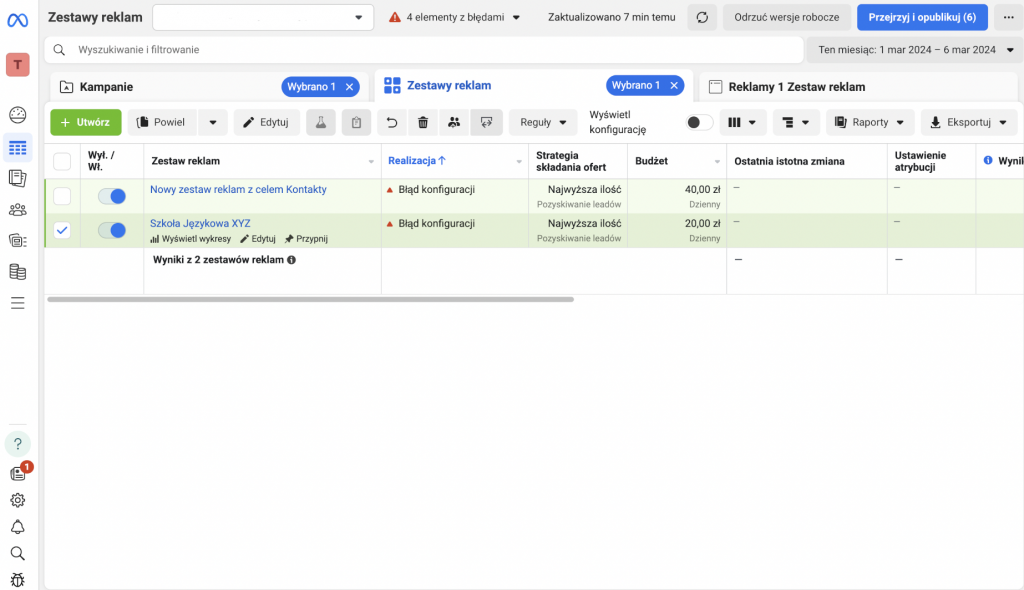
In a digital age where social media is becoming central to communication and interaction, Facebook marketing is emerging as a key strategy for businesses and educational institutions. With its broad reach and advanced targeting options, Facebook Ads offers a unique opportunity to reach potential students interested in language courses, enabling language schools to build brand awareness, engage communities and generate leads.
Is Facebook Ads effective for language schools?
Definitely! Facebook Ads can be an extremely effective tool for language schools to build brand awareness, engage with potential students and convert them to enrolments. With precise targeting and broad reach, Facebook Ads campaigns can effectively reach those interested in learning new languages
Frequently Asked Questions and Quick Answers
1. Is Facebook Ads expensive?
The cost can vary depending on several factors, such as the chosen campaign objectives, targeting and the competitiveness of the industry. In very simple terms: For smaller cities an effective monthly budget will be in the region of £600/1200, for large provincial cities the budget will start at £1200/1500
2. How long does a campaign need to run to see results?
Results may appear just a few days after a campaign is launched, but optimising and achieving long-term goals requires time and constant adjustment of the strategy.
3. Do I need a Facebook page to use Facebook Ads?
Yes, having a Facebook page is required to create and run advertising campaigns.
4. Where to see how the competition does it?
Under this link, we can select the advertising category „all” and enter „Language School” in the search field. You can also specify the specific language school you are looking for.
5. How to measure the effectiveness of a Facebook campaign?
Facebook Ads Manager provides detailed reporting and analytics to track metrics such as reach, engagement, cost per click (CPC) and ROI.
Who in the company is to take care of Facebook Ads?
Responsibility for Facebook Ads campaigns is best entrusted to one person from our school who is trained in this. This will allow you to focus on analysing data, optimising campaigns and achieving the best results. Where internal resources are limited, you may wish to consider outsourcing this role to an external specialist or agency, preferably with experience in the education industry and specialising in marketing to language schools.
Chapter 1: Getting Started with Facebook Ads?
Setting up a Facebook advertising account
To start using Facebook Ads, the first step is to set up an advertising account. The process begins by creating a Facebook business profile if you do not already have one. Then, using Facebook Business Manager, create an advertising account that will be the central point for managing campaigns, budgets and audiences.
Understanding the Facebook Ads Manager interface
Facebook Ads Manager is a powerful ad campaign management tool that offers a range of features and capabilities. To use Ads Manager effectively, it is important to understand its interface and key features, such as:
- Campaign creation: this is where you define your campaign objective, target group and budget.
- Audience management: the ability to create, edit and save specific audience groups based on demographics, interests and behaviours.
- Performance analysis: Ads Manager provides detailed reports on campaign performance, including reach, engagement and conversions, allowing ongoing adjustments to strategy.

Follow this link for a comprehensive guide to setting up an account on the Facebook Ads platform.
Chapter 2: Definition of advertising objectives
Every effective advertising campaign starts with a clear definition of objectives. In the world of digital marketing, and especially in the case of Facebook campaigns, an advertising objective is a foundation on which a promotional strategy is built. In this chapter, we will discuss which advertising objectives are available on the Facebook Ads platform and which ones are best suited to promote language schools, taking into account both cold and warm traffic.
Cold vs Warm Traffic
Distinguishing between cold and warm traffic is key when choosing advertising targets.
Cold traffic refers to users who are not yet familiar with your language school or have not considered learning a new language. Targets such as brand awareness and reach are ideal for this group, as they initiate first contact.
Warm traffic, on the other hand, consists of people who are already familiar with your brand or have expressed an interest in learning the language. For this group, goals such as engagement, lead generation or conversions are more appropriate, as they are closer to deciding to enrol on a course.
Advertising objectives on Facebook
In an effective Facebook Ads campaign, it is crucial to select the targets that best meet the needs and expectations of the language school. Facebook Ads offers three main categories of advertising objectives: Awareness, Action and Conversion.
1. Awareness
Campaigns focusing on awareness aim to build brand recognition and ensure that as many people as possible learn about the existence of the language school. This is the foundation on which further marketing activities are built.
2. Action
The action category is the most extensive section in Facebook Ads, comprising targets focused on triggering a specific user response or activity. These ads are more precise and require a good knowledge of the target audience.
3. Conversion
A conversion campaign aims to get users to perform a specific action, such as signing up for a language course. This is a category that directly translates into increased sales and lead generation.
You can read more about the objectives here.
Chapter 3: Creating the first campaign
Target group selection: how to reach potential students
Creating a successful Facebook campaign begins with the precise definition of the target audience. Thanks to Facebook’s advanced targeting tools, it is possible to define the audience of your adverts in detail. Here are some steps to help you select the right target group:
- Analyse the current student base: Start by analysing the demographics, interests and behaviours of your current students. This will allow you to identify common characteristics that can be used to target new customers.
- Create student personas: Based on the data you have collected, create detailed profiles of people who may be interested in the courses. Distinguish their goals, needs and preferences.
- Using Facebook’s targeting tools: Facebook Ads offers extensive segmentation options, including geographic targeting, and demographic targeting, based on interests, behaviours and more. Use these tools to tailor your ad to those most likely to be interested in your offer.
- Testing and optimisation: Test different target groups using A/B tests to identify which groups respond best to your adverts. Optimise campaigns based on the data obtained. More on this topic here:
Budget and Schedule: How to manage expenses effectively
Proper management of a campaign’s budget and schedule is key to maximising its effectiveness while controlling costs. Here is how to effectively manage campaign finances:
- Set a daily budget: Facebook allows you to set a daily or total budget. In most cases, however, it is recommended to use a daily budget.
- Use optimisation tools: Facebook offers various bidding strategies to help you optimise your spending for the best results. Experiment with different options to find the most effective one.
- Monitor and adjust in real-time: Regularly check your campaign results and adjust your budget and schedule based on the data obtained. You may discover that certain days of the week or hours produce better results and it is then worth increasing spending.
Summary
Creating the first advertising campaign for a language school on Facebook requires careful analysis of the target audience, the design of engaging content and effective budget and schedule management. The key to success is to continually test, optimise and adjust the strategy based on the data and feedback obtained. With this approach, language schools can maximise the return on investment of Facebook ads, attracting new students and growing their business.
